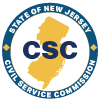Reducing the Impact of Unconscious Bias and Microaggressions Workshops
Course Description
Reducing the Impact of Unconscious Bias and Microaggressions Pt. 1
We live and work in a world that is diverse on many levels. However, it becomes problematic when we let our unconscious biases interfere with building personal and professional relationships. It is critical to be aware of our own biases, the microaggressions we may be displaying towards others, and develop strategic actions we can take to manage them successfully.
Learning Objectives
· Recognize inherent biases people unconsciously use as filters
· Enhance awareness of the negative impact unconscious biases create when unmanaged
· Identify common microaggressions
· Utilize a multi-step strategy to manage and eliminate microaggressions from day-to-day interpersonal interactions
· Create a personal action plan to mitigate unconscious biases and microaggressions
Reducing the Impact of Unconscious Bias and Microaggressions Pt. 2
This course has been developed as a follow through of the Reducing the Impact of Unconscious Bias and Microaggressions Part 1 course. Several key topics covered included those listed below. The primary goal of both parts is to provide awareness of the behaviors that may constitute unconscious biases and microaggressions, and the impact on the sender, receiver, and potentially others around them.
This part takes the topics further by discussing other behaviors that fall under these headings. It is important to note, neither of these courses is designed to be judgmental of anyone in the workplace or punitive. Please stress to the attendees that the goals are to increase awareness so that we may all reflect on how we communicate, behave, and may impact others. At the end of the course, attendees will have the opportunity to create an action plan so they may incorporate their knowledge in their relationships.
Learning Objectives
· Understand the difference between intent and impact of one’s actions
· Understand the responsibilities and requirements of allyship
· Recognize the boundaries of friendly versus harassing behaviors
· Develop the ability to engage in respectful conversations to reflect the diverse experiences and preferences of all
· Gain a comprehensive understanding of the principles of inclusivity
· Create an action plan to apply the course concepts to your work environment
Contact the CLIP Customer Success Team to discuss workshops and pricing options for both half-day and full-day workshops.

 Official Site of The State of New Jersey
Official Site of The State of New Jersey